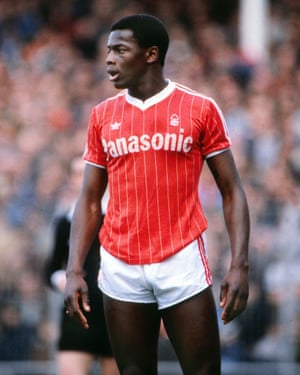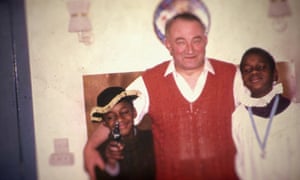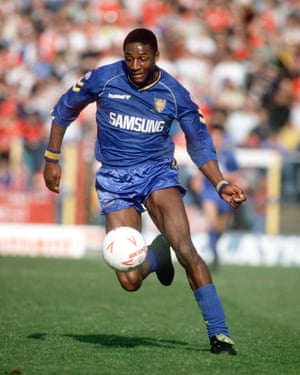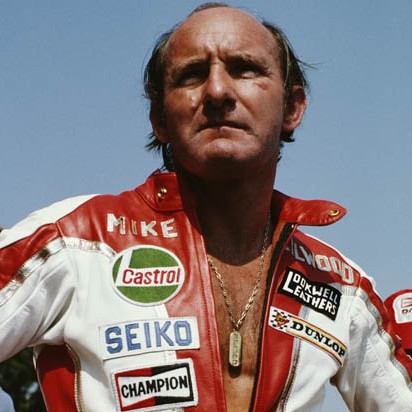Forbidden Games – The Justin Fashanu Story
Premieres: 2nd May 2017 Toronto’s Hot Docs Festival
Fulwell 73 Productions, Darke Films, Black Sun Media
International sales: The Film Sales Company, Andrew Herwitz
Producers: Adam Darke, Jon Carey, Leo Perlman
Executive producers: Benjamin Turner, Gabe Turner
Cinematography: Damian Bradshaw
Editor: Jon Carey
Original Music: Soren Andersen
The story of Justin Fashanu – the world’s first £1m black footballer and Britain’s first openly gay footballer, who killed himself aged 37 in 1998 – makes a moving, challenging, troubling biopic. Forbidden Games tells how Justin and his brother John, aged four and three, were removed from their mother and three siblings, to be fostered by Barnardo’s. The more sensitive Justin could never reconcile what he perceived to be an abandonment, but John saw things differently. “No mother wants to give away her own children,” he says, “and it propelled us to become major celebrities all over the world. We made ourselves millionaires, so it couldn’t have been all that bad, could it?”
John’s resulting insecurity manifested itself in shyness and a speech impediment. He clung to Justin, “the only person who could hear what I was talking about … that was part of the bonding of us at a young age”.
Eventually, the brothers were fostered by a white couple in Shropham, Norfolk, where their real mother would visit once a month. They were excited by the opportunity to be part of a family, but the passage was not seamless – John struggled to sleep, so a doctor told his foster mother to hug him tight. “She used to grab me and give me a great big cuddle every morning, every evening, and that gave me a lot of security,” he recalls. “It was a lovely feeling, your whole face disappearing into Mummy’s breasts.”
The boys’ colour made them outsiders in Norfolk. “If you saw a black person,” says John, “that was Michael Jackson’s picture somewhere, and maybe, maybe, if you were lucky, Muhammad Ali … they were the only black people I saw in my life till I got to 18, 19.”

Accordingly, they grew up knowing “nothing about race”; had the 16-year-old John been asked about colour, “I’d have told you I was white because the environment was white.” But his world changed when, at the age of 18 and without Justin, he visited Nigeria – his father’s homeland, and now his home. “The plane landed, and for the first time the doors opened and I just saw black people everywhere,” he says. “I was shocked! I thought: ‘Wow, wonderful!’ My own people! My God! Hallelujah! People who look like me! I can walk around the whole of Nigeria free as a black man! That was the beginning of my life as far as I was concerned.”
Meanwhile Justin, though proud, was ambivalent regarding race; principally, he wanted to be left alone. Scarred by the childhood trauma from which he had protected John – he endured violent nightmares into adulthood – he was simultaneously vulnerable and charismatic, desperate for acceptance and searching for identity.
Growing up where and when he did, this was not easy. “It was a racist society,” John recalls. “Times have, thank goodness, changed, but they’ve changed on our backs.”
After suffering numerous beatings, the brothers took up boxing and martial arts. The single-minded John became an expert, while the impressionable Justin was dissuaded by those who deemed them dangerous – or, as John sees it: “He was always getting something and dropping it.”
But his footballing excellence was unignorable. “That was the easiest way for us to make money, which we made an awful lot of,” says John. “There were no black bankers, lawyers, or anything at all. We knew the only way to make money if you were black was either to sing, dance or play football – that’s it.”
Justin soon carved a niche at Norwich, before signing for Brian Clough’s Nottingham Forest in 1981. During that time, he developed a taste for big spending and fast living, also making regular appearances in Nottingham’s gay bars. Before long, Clough excommunicated him, even calling the police to the training ground on one occasion. Beset by injury, Justin’s career tailed off, while his personal life grew increasingly chaotic and his behaviour increasingly erratic.

John left Norwich in 1983 to escape his more talented brother’s shadow; he was also angry that Justin hadn’t used his influence to help him at the club or elsewhere. The man he saw as “my mother and father”, “my shining light” and “my life” became “my arch enemy”, and their relationship never recovered.
In 1986, John joined Wimbledon, and was a key figure as the Crazy Gang established themselves in the top division before winning the FA Cup in 1988. In 1989, he was picked for England, and in 1990 at the Professional Footballers’ Association dinner, he was accosted in the toilet.
“One of the most famous players, playing for Nottingham Forest, just said to me: ‘Hey, your brother’s gay.’ I’d heard little things, but when he said that, the first thing I was gonna do, I was gonna beat the hell out of him. I was with Vinnie Jones, and it was Vinnie who held me back … I was gonna give him a good slap because I thought he was insulting my brother.”
John, “a red-blooded African man”, did not believe it – until Justin confided in him. Both their mothers were ill, and assuming that Justin was simply after money and attention, John responded angrily. “Right now, we don’t need that,” he said. “I will give you £100,000 if you just keep your mouth shut.”
John was also concerned for himself: “I was worried that people would think it was me. John Fashanu, Justin Fashanu, J and J … I was the hard man, we were hard men, Vinnie Jones, John Fashanu, Dennis Wise, we were the hard team with a macho, strong image, we had a massive following of people who loved the way we played, and suddenly my brother’s coming out and saying this?”

So to “empower” his brother, John wrote a cheque and had his agent take Justin to a hotel, only to discover that “my agent was a gay sympathiser”. In the event, Justin kept John’s money and sold the story to the Sun anyway.
Justin also revealed that he had slept with a married Conservative MP and that they had kissed in the House of Commons. He later retracted the claims – despite overwhelming evidence to the contrary – but John now believes that the liaison never happened.
Nor does he accept the evidence offered by a teammate at Leyton Orient that Justin would arrive at training with “rent boys”, and says that an allegation of raping a minor in the US is untrue; on the other hand, after questioning and blood testing, a warrant was issued for Justin’s arrest on charges of first- and second-degree assault and second-degree sexual assault. But he had already left for England.
The last time the brothers spoke, Justin feared for his liberty, but John, despite now accepting homosexuality as “a normal thing”, was “too annoyed to understand what he was really saying” and did not believe that Justin deserved his unconditional loyalty. “There comes a time when it’s enough help,” he says. “Enough is enough. He was my older brother, not my younger brother. Why am I continually giving him money?” Three days later, John was baptising his son Amir when the police arrived, media in tow, to tell him that his brother had killed himself and asking him to identify the body.
“I feel a bit cross with myself that I didn’t see these challenges Justin was having,” he says. “A little bit more understanding and a little bit more softness could’ve changed a lot of things … the misunderstanding Justin had with Mother is the same misunderstanding I had with Justin.”
But even if he might have acted differently, he has no regrets: “You can’t go back and say: ‘Oh my God, how would it have been different?’ Because the whole world would have been different.” Nor does he think that things might have turned out differently had he not handled Justin’s coming out the way he did. “I think that he would have possibly committed suicide even earlier … and I now thank God I didn’t give him all the money I’d promised to give him.”
Although he remembers Justin in his prayers every Sunday, he has moved on. “Put it in perspective,” he insists. “Why would I be crying after 15 years. My mother has died, my other mother has died, my father has died, people die.”
He remains proud of his brother. “Whether you like him or you don’t like him, or you love him or you hate him, Justin Fashanu is a legend.”



